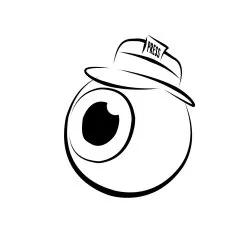The ordinance defines surveillance equipment as anything “capable of capturing or recording data, including images, videos, photographs or audio operated by or at the direction of a City department that may deliberately or inadvertently capture activities of individuals on public or private property, regardless of whether ‘masking’ or other technology might be used to obscure or prevent the equipment from capturing certain views." That includes “drones or unmanned aircraft and any attached equipment used to collect data.”
Stuckart introduced the ordinance following Seattle’s consideration of a similar law. He told a Public Safety Committee meeting in June it would be “better to have this protection in place versus waiting for it to happen and then us be upset about police drones above us.”
But the original ordinance didn’t mention leased equipment and excluded a handful of technologies used by police that activists argued should be better regulated.
The ordinance did not require any pre-approval for handheld or body-worn devices used by law enforcement, traffic cameras, cameras inside or at entrances to city buildings, cameras in or on police vehicles or those on fire, emergency, utility or street maintenance vehicles “intended for safe operation of the vehicles,” or “a camera installed to monitor and protect the physical integrity of city infrastructure.”
In a letter late last month, the ACLU of Washington argued the ordinance should cover all surveillance equipment and activities “that pose a potential threat to privacy,” like red light cameras and cameras mounted on public buildings. Other community activists argued body cameras shouldn't be excluded, Stuckart says. So now he’s “stopped being so stubborn” and is looking at ways to balance “everybody’s needs and wishes,” he says.
Stuckart says in the new ordinance the requirement for council approval will still only apply to new technologies — not those already in existence, like license plate readers — but departments will be required to write protocols for existing and exempted equipment. Those protocols will be public and include things like how the department will use the data it gathers and how long it will be stored. Stuckart says he’s working with prosecutors, police and activists in rewriting the ordinance. He expects to send the revised ordinance to other council members by the end of this week.
Jacob Jones contributed to this report.

